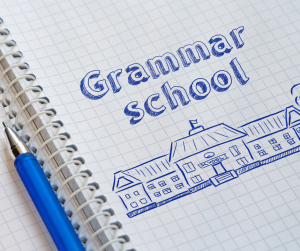Grammar Schools – why they must return
 Once again there is talk in the corridors of power about ending the ban on new grammar schools – but we’ve had many false starts before.
Once again there is talk in the corridors of power about ending the ban on new grammar schools – but we’ve had many false starts before.
While the Prime Minister is said to be in favour of selective education and the opening of more of these schools that lead to increased social mobility, his civil servants are said to be opposed.
The Daily Telegraph reports that ‘officials in the Department of Education said there are currently ‘no plans’.
However, their opinion is totally irrelevant and the Prime Minister and his Education Secretary should push ahead.
Not only is it beneficial for the prospects of bright children from lower income homes, but it would be a good move politically.
Many red wall MPs are in favour of new grammars and most existing ones are located in the south.
Harold Wilson was responsible for dismantling much of the grammar school system even though he himself had been to one. Hypocrisy plays a large part in the recent history of grammar schools.
This dismantling continued under Edward Heath, when they were turned into comprehensive schools, despite having also gone to a grammar school.
When she was in Number 10, Margaret Thatcher – who went to a grammar school – talked about her regrets about continuing to dismantle more of the grammar school system when she was Education Secretary under the Heath Government.
John Major talked of a grammar school in every town, but only one – Queen Elizabeth Boys in Barnett, London – was opened under his premiership.
Major also attended a grammar school.
Tony Blair, privileged with a private school education, tolerated grammar schools but undermined them by forcing them to fix their entry numbers.
Gordon Brown, privileged with a High School (Scotland’s version of a grammar school) education, went on to earn a first-class honours degree and a PhD. Recognition of his academic potential certainly helped him although he continued to undermine grammar schools when he was in office.
David Cameron, privileged with an Eton education, was a return to the Blair years – he had no intention of letting them expand but allowed them to continue.
Oddly, his own privileged background didn’t prompt him to offer opportunities to those who were not so privileged.
Then we had Theresa May, who also had a grammar school education and had a clear plan to let them expand but was stymied by an election disaster in 2017.
Now we have Boris Johnson, who talks about it but doesn’t act. It’s time for action Boris!
It is interesting to note that every Prime Minister since 1963 has either been to a grammar school or been to a private school – except James Callaghan – who followed Harold Wilson and preceded Margaret Thatcher.
In total, this makes six Prime Ministers in this period who went to grammar schools and only three who went to private schools.
Another interesting statistic is that four out of the six who went to grammar schools were Conservative and only two were Labour.
There is a considerable number of attacks on the Conservatives for drawing from highly privileged backgrounds for their Prime Ministers, but certainly since the 1960s this is not true.
The most successful of the Labour Prime Ministers, Tony Blair, was privately educated – at the posh Fettes College in Edinburgh no less.
There have been only two privately educated Conservative Prime Ministers in this period – David Cameron and Boris Johnson.
The grammar system has many alumni from ordinary or less privileged backgrounds who have played an important role in Britain’s national life.
And to name but a few; musicians such as the Rolling Stones, the Beatles, Sting, and entertainers such as Dudley Moore, Steve Coogan, playwright Alan Bennett and broadcaster John Humphries.
A full return to the grammar school system would not be possible or desirable.
However, the policy of a grammar school in every town would be.
There is a great deal of pressure on the existing grammar schools to provide more places.
The existing grammar schools are now the target of aspirant parents and this is pushing up house prices in these areas.
If the grammar schools were more numerous it would take the heat out of the system. The pressure on places has pushed up required scores for places and this has further encouraged harsh competition.
The internet and social media has meant that parents are far more aware of the existence of grammar schools outside their own LEAs and this again has made them a target for parents.
A grammar in every major town would mean parents really did have a choice. If their child was academically bright they could pursue the grammar school route whatever their background happened to be. There would be less pressure on places if this were the case.
Tuition cannot be prevented but is less of a factor if there are many places. The entry requirements could be lowered.
Most grammar schools do take children on lower scores if they are on ‘pupil premium’, and this also opens up possibilities for children who are less privileged and more disadvantaged.
There needs to be routes for those who show academic potential but cannot afford private schools. The state system should not be afraid of excellence. Both Germany and France have academic routes for children who have these particular strengths.
The government should also be strengthening other educational routes for children to pursue. Academic aptitude is one kind of ability but there are other kinds of intelligence. This means that vocational and practical routes should be open to children and these should not be regarded as second best.
ends